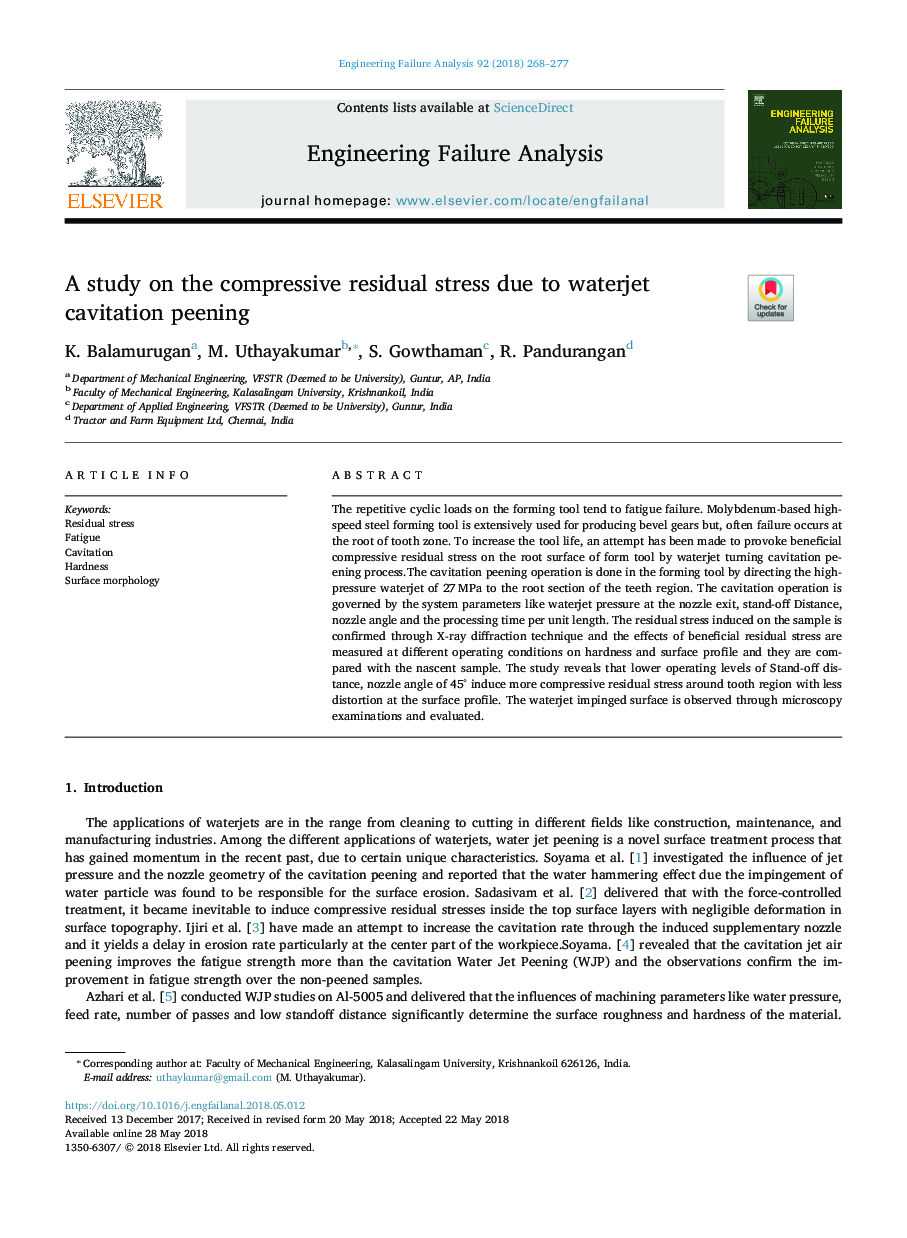| Article ID | Journal | Published Year | Pages | File Type |
|---|---|---|---|---|
| 7167086 | Engineering Failure Analysis | 2018 | 10 Pages |
Abstract
The repetitive cyclic loads on the forming tool tend to fatigue failure. Molybdenum-based high-speed steel forming tool is extensively used for producing bevel gears but, often failure occurs at the root of tooth zone. To increase the tool life, an attempt has been made to provoke beneficial compressive residual stress on the root surface of form tool by waterjet turning cavitation peening process.The cavitation peening operation is done in the forming tool by directing the high-pressure waterjet of 27â¯MPa to the root section of the teeth region. The cavitation operation is governed by the system parameters like waterjet pressure at the nozzle exit, stand-off Distance, nozzle angle and the processing time per unit length. The residual stress induced on the sample is confirmed through X-ray diffraction technique and the effects of beneficial residual stress are measured at different operating conditions on hardness and surface profile and they are compared with the nascent sample. The study reveals that lower operating levels of Stand-off distance, nozzle angle of 45° induce more compressive residual stress around tooth region with less distortion at the surface profile. The waterjet impinged surface is observed through microscopy examinations and evaluated.
Related Topics
Physical Sciences and Engineering
Engineering
Industrial and Manufacturing Engineering
Authors
K. Balamurugan, M. Uthayakumar, S. Gowthaman, R. Pandurangan,
